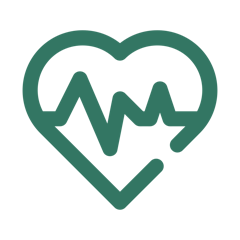Project managers essentially oversee projects from start to finish, or from inception to implementation. According to the US Bureau of Labor Statistics, this will include tasks like coordinating budgets, scheduling, staffing, and any other pertinent details of the project3.
Job Description and Core Responsibilities:
Project manager job descriptions will likely include buzzwords and key focus areas such as planning for project’s scope, timeline, schedule, goals, and project deliverables. Inherent in the title, project managers will manage the timeline, schedule and roles of people involved, budget, and resources. They are responsible for communicating with key stakeholders about their roles, deliverables, timelines, etc. Essentially, they are the leaders and go-to person for whatever project they manage. Project deliverables are a tangible breakdown of the goal that client or stakeholder is looking to accomplish by the end of the project.
Real-World Example:
To put this into perspective with a concrete example, let’s consider a university implementing a trauma-informed care seminar for teachers. The project manager is in charge of ensuring the teachers receive this seminar. The process would likely start with creating a budget (i.e., How much is the trauma-informed care professional running the seminar going to cost? Will there be refreshments at the event? Does it cost money to rent a room to host the seminar? etc.) creating a timeline (when do we want this event to happen?), identifying key stakeholders (is this training just for full-time teachers? Do we want other staff present, such as the school nurse, guidance counselor, administrator, coaches, etc?), and then putting the project plan into action.
The project manager will be the primary communicator with the seminar leader, school administrators, funders, teachers, etc and explain the project plan (seminar staffing, pre/post survey) to these stakeholders. They will likely be present at the event to help with flow, answer any questions, and triage any day-of issues. After the seminar, they can conduct pre and post surveys to gauge how helpful this training was to school staff so they can modify it going forward.
Public Health Project Manager vs. Program Manager vs. Clinical or Research Project Manager:
There are many different kinds of ‘manager’ roles, even within the field of public health and healthcare. You may see positions described as ‘public health project manager’, ‘program manager’, ‘clinical project manager’ and ‘research project manager’. While in the macro sense these roles may be similar, there are distinct differences between them. A public health project manager would take the type of role described above; they are in charge of public health-related projects.
Because the field of public health is so vast, these topic areas could have a variety of focus areas, from environmental health to disease control to behavioral health. Program managers take a different approach because they manage programs instead of projects. Programs typically operate for a longer period of time (compared to shorter-term projects) so program managers also consider factors like sustainability and longer-term relationship development. A public health program manager may work on a program to deliver catch up childhood vaccines to local schools, while a public health project manager might work on the communication campaign to increase vaccine compliance.
Clinical project managers and research project managers are titles that are sometimes used interchangeably and describe a type of project manager focused on clinical trials or other clinical research. They manage clinical trials, which are essentially research studies on new medicines, vaccines, and devices. Any research on human subjects has strict protocols and adherence guidelines, so clinical project managers have to abide by government regulations in addition to their own project protocols. The day-to-day core responsibilities of clinical project managers are similar to public health project managers (planning, management, communication, leadership), just with a different focus area and set of guidelines.






